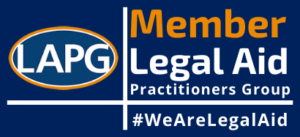The Law’s Delay In The English And Welsh Criminal Justice System – Nothing New and Nothing Changing
Originally published in Human Rights Pulse 11 December 2021
In the wake of the recent Autumn Budget, the UK government has promised an additional £2.2bn to deal with the backlog in the Crown Court, the court where, before a judge and jury, the most serious criminal trials are heard for offences including rape and murder. £500m has gone towards the courts, and the rest has gone to wider aspects of the criminal justice system including legal aid, prisons, and probation services. Whilst trumpeted by ministers, the response of those at the coalface of the criminal justice system has been one of cynicism, frustration, and despair. Not that such a response was unjustified however, a recent report from the National Audit Office (NAO) has proven to be a sobering read for those concerned about access to criminal justice.
THE PROBLEM
The criminal justice system in England and Wales (Scotland has its own legal system so is not discussed in this article) is not in a good shape. The backlog of cases waiting to be heard has now peaked at just shy of 61,000. This is an increase of 48% from the onset of the pandemic in the UK in March 2020. A particularly startling figure is the percentage increase of those waiting more than a year for their case to be heard; 302%. For rape and other serious sexual offences, the increase of those cases waiting to be heard is of 71%.
However, the problems are not limited to the courts. Charging rates have halved, with women particularly suffering. Rape complaints are seven times less likely to be heard in court with only a “derisory” 1.6% of rape complaints, as of 2020, ending in a formal charge. Furthermore, as a depressing expression of cynicism in the justice system, 45% of rape complainants drop charges after reporting an offence to the police.
Even if the case is lucky enough to reach the courts, a speedy trial is not guaranteed in the slightest. Parties for a trial can expect a delay of at least a year, if not three or four, before the case is heard. A worrying trend is the inability for lawyers to be found to represent parties in trials and the increase in courts sitting empty due to the limits on sitting days.
Working conditions are poor for those involved with low pay rates for lawyers in comparison to other similarly qualified counterparts, with practitioners sometimes earning less than the minimum wage. As pointed out by the chair of the Criminal Bar, Jo Sidhu QC, such poor conditions have a negative impact on diversity at the Bar. It will become more like the past where barristers were predominantly white men and those with inherited wealth. Such a lack of diversity is troubling as, unfortunately, people from ethnic minorities are overrepresented as criminal defendants.
Such a delay in the process prompts pessimism from those involved. Complainants and witnesses drop out worn out by the repeated adjournments. Defendants are similarly effected, with their lives on hold they face the silent punishment of limbo before their case is heard. Such punishment harms the axiom of “innocent until proven guilty”. The guilty defendants, however, benefit as trials collapse leading to perpetrators walking free much to the detriment of society.
WAS IT REALLY COVID?
The current Covid-19 pandemic presented a monumental problem to the justice system. Like many other public services, the criminal courts were shut down as it was not possible to maintain social distancing in the courtrooms.
Over time, measures such as screens between jury members, an increase in online hearings, and temporary “Nightingale Courts” repurposing venues as diverse as hotels and theatres, helped restart the criminal justice system but naturally could only mitigate the increasing backlog.
Whilst the Government say the backlog was Covid, practitioners and the data say otherwise. Criminal barrister and prominent justice commentator, The Secret Barrister, reminds us that the pandemic did not cause but rather exacerbated the backlog. The NAO report states that the backlog increased by 23% before the pandemic hit.
So was the pandemic really the cause of the backlog? The answer has to be a short, sharp “no”.
SO WHAT WAS IT?
In summary, lack of funding. The UK government has consistently whittled down the justice system. The number of magistrates’ courts (for less serious offences) has decreased from 323 in 2010 to 161 in 2019. In the same time period, the 92 Crown Courts have become 84.
The number of days a judge can “sit” to hear cases, known as sitting days, has been steadily declining. The then-chair of the Criminal Bar Association, Caroline Goodwin QC stated last year “we have seen a steady decline since 2015. We are 27,000 sitting days down from 2015/2016. The consequences are dramatic”.
Such hollowing-out of the system is what has caused the poor working conditions spiralling into an exodus of criminal justice system practitioners, thus harming society.
BUT SURELY THE INCREASE IN FUNDING IS A GOOD THING?
Indeed, it is. However, the increase in funding has been criticised for not going far enough. When the root causes of the issues are not addressed, efforts to remedy the symptoms prove to be pointless. The CBA chair stated that there is “little sense putting aside headline-grabbing sums on important initiatives to tackle rape and violence against women, or repeating a commitment to the largest capital spend on prisons in a generation, when there is only short-term funding’ for the courts, ‘the engine room of the system’”.
Such sentiments are echoed in the NAO report. Without a clear vision and understanding of the capabilities and needs of each criminal justice system component, the backlog will take until 2025 to return to pre-pandemic levels.
Whilst the removal of the cap on sitting days is a good thing, minus an increase in court capacity such a measure will not impact the crisis in the manner intended. The Ministry of Justice’s best case scenario of having 111,500 sitting days for 2021-2022 was stymied by the refusal of Her Majesty’s Treasury to grant funding for 33 extra Nightingale courts.
WHAT IS TO BE DONE?
It can be hoped that the report will continue to raise awareness of the long-standing, if not long-increasing problem of delays, poor working conditions, and lack of staff. Whether that will translate into concrete action is another question.
To remedy the backlog there has to be an increase of court capacity and better working conditions for practitioners. This can only be supported by not only more funding, but funding with a vision that understands the unique capabilities and capacities of the criminal justice system mechanisms.
However, it is not all doom and gloom, the NAO report does predict the backlog in the magistrates’ court to decrease to pre-pandemic levels this month.
The UK conservative government wants to look tough on crime and be the party of law and order but ay, there’s the rub; in the absence of any coherent vision and long-term funding, looking tough will be the only thing the government achieves.
Charles is a recent Graduate Diploma in Law graduate. He is passionate about pursuing an area of law that makes a difference to the lives of the individual. His interests include European refugee law, criminal, family, and immigration law. In his free time he enjoys listening to music and reading.
Linkedin










Leave a Reply
Want to join the discussion?Feel free to contribute!